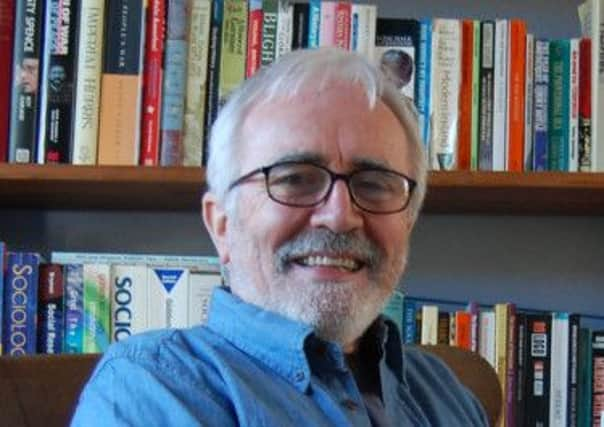Blessed are the peacemakers


He drifts off to sleep. Suddenly, big Jimmy from Belfast appears as if from nowhere, his string vest stretched to breaking point by his generous midriff, and his ghetto blaster slung over his shoulder. He plants himself only feet away from our slumbering sunbather and switches on the foul machine, shattering the peace.
Now, you could say that our sunbather’s rights are being infringed in that he is entitled to enjoy peace and quiet, but Jimmy has the right to lie on the beach of his choice and listen to the music of his choice, hasn’t he?
Advertisement
Hide AdAdvertisement
Hide AdBut there’s an issue: Where does one man’s freedom begin and another’s end? Isn’t that the story of Northern Ireland over the decades: the irresistible force and the immoveable object?
The following is an extract from a news item about the tension at the Drumcree/Garvaghy interface in 1998:
‘The Orange Order, the largest Protestant organisation in Northern Ireland, has marched this route since 1807. However, the march passes through the predominantly nationalist Garvaghy Road area of Portadown where a well-organised campaign against the parade developed. The Orange Order insisted that it was their right to legally and peacefully walk down the road. The residents said that it was their equal right not to be subjected to what they perceived to be a triumphalist display of sectarianism.’
The hope that I voiced when I first wrote about the impasse all those years ago was that either of the factions could claim the high moral ground by saying: ‘Yes, I know we have the right to be free from what we see as a triumphalist march down that particular section of the road, but you know what? We will not demand our rights.’ Or: ‘Yes, I know we have the right to walk down that particular stretch of the Queen’s Highway, but in the interests of peace and harmony, and in the hope of initiating a mature debate, we will not demand our rights.’
Advertisement
Hide AdAdvertisement
Hide AdI was a contributor to a BBC radio programme in which this question was being discussed at the height of the tension in the town in which I grew up and I made that suggestion, but to no avail, adding a question: What would Jesus do?
Another contributor, a clergyman, said that he could easily imagine the Master leading a parade down the Garvaghy Road. I don’t know about that: he certainly wasn’t encouraging his listeners to demand their rights when he said: ‘If someone strikes your face, turn the other cheek’. Or: ‘If someone forces you to carry their bag for a mile, carry it two miles!’
It seems to me that this province of ours will continue to stagger from crisis to crisis until and unless someone is big enough, statesmanlike enough to point the way to the road less travelled, the way of the peacemaker. Paul said: ‘Watch out for people who cause divisions and upset by teaching things contrary to what you have been taught. Stay away from them. Such people are not serving Christ. They are serving their own personal interests.’